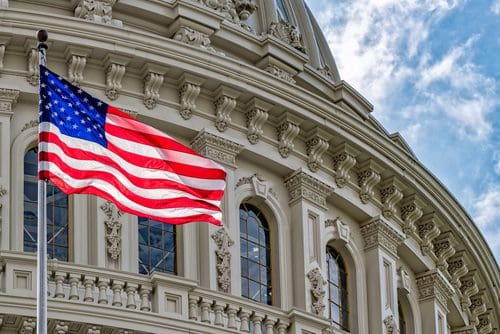Search Posts
Recent Posts
- Rhode Island Weather for May 22, 2025 – Jack Donnelly May 22, 2025
- We Cook! Mill’s Tavern Louisiana style beer braised Short Rib, Grits, Baked Beans, Cornbread May 22, 2025
- RI Veterans: Did you know? 22.05.25 (Medical, Memorial Day, War Dog, events) – John A. Cianci May 22, 2025
- RI Trucking Association calling on Governor and General Assembly to halt truck tolls May 22, 2025
- 8th annual Rhode Island Slow Pitch Softball Hall of Fame: Class of 2025 May 22, 2025
Categories
Subscribe!
Thanks for subscribing! Please check your email for further instructions.

National bill to protect nursing home residents, providers
By Herb Weiss, contributing writer on aging issues
In May, U.S. Senator Bob Casey (D-PA) and Senator Sheldon Whitehouse (D-RI) will throw a bill in the legislative hopper to slow the spread of novel coronavirus (COVID-19) in nursing homes. It’s a common-sense legislative proposal and needed.
A recently released Kaiser Family Foundation study reported, “COVID-19 has had a disproportionate effect on people who reside or work in long-term care facilities, including the 1.3 million individuals in nursing homes; 800,000 in assisted living facilities; 75,000 in intermediate care facilities; and 3 million people who work in skilled nursing or residential care facilities.”
Combatting COVID-19 in Congregate Settings
With COVID-19 quickly spreading throughout the nation’s nursing homes and intermediate care facilities, Casey and Whitehouse’s legislative proposal, S. 3768, The Nursing Home COVID-19 Protection and Prevention Act, seeks to provide needed resources to facilities to protect frail residents and staff.
Residents in these facilities are among the most vulnerable because of their age and underlying medical conditions. According to an analysis conducted by Gregg Girvan for the Foundation for Research on Equal Opportunity, as of May 22, in the 39 states that currently report such figures, 43 percent of all COVID-19 deaths have taken place in nursing homes and assisted living facilities.
As more than 20,000 nursing homes residents and workers have died due to COVID-19, according to the latest reports, on May 19, 2020, Casey and Whitehouse introduced S.3768 to help states, nursing homes and intermediate care facilities put the brakes on the spreading of the deadly COVID-19. The legislative proposal, with 14 Democratic cosponsors (including Rhode Island Senator Jack Reed), would help states implement strategies to reduce the spread of COVID-19 in congregate settings, including through the purchase of personal protective equipment (PPE) and testing and to support nursing home workers with premium pay, overtime and other essential benefits.
S. 3768 was referred to Senate Health, Education, Labor, and Pensions. As of March 30, 2020, a Congressional Budget Office cost estimate or this measure has not been received.
Days after the introduction of 25-page Senate legislative proposal, a House version (H.R. 6972) was introduced by Rep. Ana G. Eshoo (D-CA), cosponsored by Reps. Janice D. Schakowsky (D-IL), Donna E. Shalala (D-FL), Madeleine Dean (D-PA), Seth Moulton (D-MA) and David N. Cicilline (D-RI). The House bill was referred to House Energy and Commerce.
“This virus spares no state, no county, no facility. The unprecedented crisis unfolding in our Nation’s nursing homes demands an immediate, extraordinary response. Reports indicate nursing home residents and workers account for roughly 1 in 4 deaths from COVID-19 in the United States,” said Casey, who serves as Ranking Member of the U.S Senate Special Committee on Aging, in a statement announcing the bill’s introduction. “The Nursing Home COVID-19 Protection and Prevention Act would provide $20 billion in emergency funding [for staffing, testing, Personal Protective Equipment, etc.] to devise a sorely needed national, coordinated response to stem the spread of this terrible virus in nursing homes and intermediate care facilities,” notes Casey.
According to Casey, the Senate bill would also require the U.S. Department of Health and Human Services (HHS) to develop guidance on cohorting best practices, including on how to safeguard resident rights. It would also instruct HHS to collect and publish data on COVID-19 cases and deaths in nursing homes and intermediate care facilities, and finally fund surge teams of nurses, aides, and other critical staff to fill in at facilities where multiple residents and staff members have been infected.
“COVID-19 poses an immediate threat to the more than 1.3 million Americans, including more than 7,000 Rhode Islanders, who live in nursing homes,” says Whitehouse, noting that frontline staff across the nation are “doing heroic work under very challenging circumstances.”
“We need to get vastly more personal protective equipment and tests to nursing homes, which care for the patients who are most vulnerable to the coronavirus. Our legislation would also help states fund surge teams, sending additional staff reinforcements to facilities where they are needed to care for patients and prevent infection,” adds Whitehouse.
Before S. 3768 was officially introduced, in early March, Washington, DC-based AARP announced its support for the Senate proposal. “AARP supports the draft of the Nursing Home COVID-19 Protection and Prevention Act that would help protect the health and save the lives of people in nursing homes and other facilities by supporting testing, personal protective equipment, staffing and more,” said Megan O’Reilly, Vice President of Government Affairs for AARP. “The proposal would also improve public transparency and help protect the rights of residents and their families, adds O’Reilly, calling on Congress “to act immediately to stem the loss of life and slow the spread of the virus.”
In the House Chamber, Rhode Island’s Cicilline, a member of the House Democratic Leadership as Chair of the Democratic Policy and Communications Committee, has also pushed for Congressional funding to stop the spread of COVID-19 in nursing homes. The fifth term Congressman has called for additional funding for the Public Health and Social Services Emergency Fund in the next package for congregate care facilities, including nursing homes. He also signed a letter to HHS Secretary Azar and Administrator Verma, of the Centers for Medicare and Medicaid Services (CMS), urging that HHS and the CMS to ensure that a significant portion of the newly allocated $25 billion for testing in the recently passed CARES Act be utilized for testing in nursing homes and other congregate living facilities.
State-wide Efforts to Combat COVID-19 in Nursing Homes
With Governor Gina Raimondo declaring a state of emergency on March 9, 2020, with the COVID-19 arriving in Rhode Island, the deadly pandemic virus spread quickly throughout the state’s nursing homes. At press time, it has been reported that 75 percent of all related COVID-19 deaths are in nursing homes.
According to Joseph Wendelken, Public Information Officer for the Rhode Island Department of Health (RIDOH), the state moved quickly to stop the spread of the COVID-19 virus in the community and in nursing homes. He stated: “We curtailed and then prohibited visiting early on, and we have been doing extensive testing in every assisted living facility in the state. We are doing cyclical testing, meaning that we are continually testing all residents in all homes on a rotating basis. We are giving tailored infection control guidance to specific homes, and we are helping them procure additional PPE.”
Adds Wendelken, RIDOH has established two COVID-19 Specialty Nursing Homes [at Oak Hill Center in Pawtucket and Oakland Grove Health Care Center in Woonsocket] to be a COVID-19 Specialty Nursing Home. “These are centralized facilities to accept patients who are being discharged from the hospital and who are COVID-19 positive but no longer require acute-level care. This strategy allows COVID-19 positive patients leaving the hospital to receive specialized rehabilitation and step-down, post-acute care while reserving hospital beds for patients who need acute-level care,” he said.
On Smith Hill, the Rhode Island House Republican Caucus has recently called for members of the House Committee on Oversight to meet to address the increasing COVID-19 death rate in the state’s nursing and assisted living facilities.
Putting Politics Aside…
With less than 156 days until the upcoming 2020 Presidential election, will S. 3768 reach the Senate floor for a vote? Since the beginning of 2019, more than 350 House-passed bills—including hundreds that have bipartisan support—have seen no action by Senate Majority Leader Mitch McConnell (R-Kentucky). With no Republican senators supporting Casey and Whitehouse’s COVID-19 bill, will it even reach the Senate floor for a vote?
Will McConnell make the safety of millions of residents who reside in the nation’s 15,583 skilled nursing facilities a legislative priority, especially during a raging COVID-19 pandemic sweeping across the nation to work together with Senate Democrats to protect frail residents and nursing home staff?
Published in the Pawtucket Times and Woonsocket Call

Herb Weiss, LRI’12, is a Pawtucket writer covering aging, health care and medical issues. To purchase Taking Charge: Collected Stories on Aging Boldly, a collection of 79 of his weekly commentaries, go to herbweiss.com.
